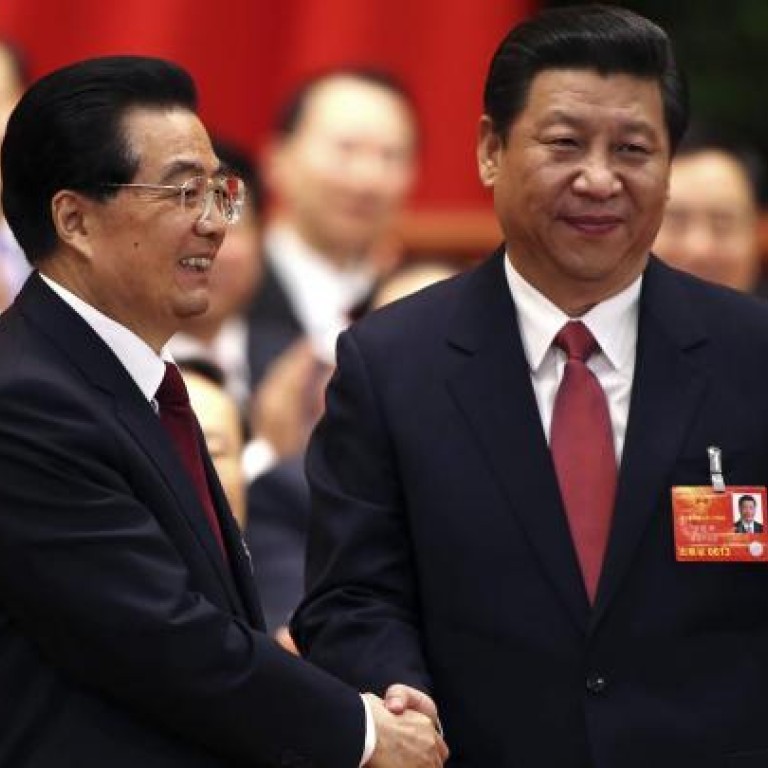
Xi Jinping completes rapid transfer of power
New president takes over the reins in a smooth succession that shows he is a strong leader who has settled party power struggles, analysts say
Xi Jinping's formal election as new president yesterday saw him assume full control over the Communist Party, the state and the armed forces in a swift and orderly transfer of power from predecessor Hu Jintao.
Only one of the nearly 3,000 deputies of the National People's Congress who voted in the Great Hall of the People in Beijing opposed Xi's succession. Three abstentions were recorded.
Xi, 59, was also appointed head of the state Central Military Commission, a parallel government post to the party's top military position which he already held after becoming party leader in November. There was also one opposing vote and three abstentions in that election.
Politburo member Li Yuanchao , who is not a member of the party's supreme, seven-member Politburo Standing Committee, was named vice-president, while Zhang Dejiang , a Politburo Standing Committee member, was elected as the new NPC chairman.
The transition of power to Xi was smoother than the one a decade ago, when Hu had to wait for two years to take over as head of the military commission from Jiang Zemin .
Analysts said the rapid transition of power indicated that Xi was a stronger leader who had settled power struggles among different factions of the party.
This was largely due to his upbringing as the son of veteran revolutionary Xi Zhongxun and his close ties to the military, which he began establishing in 1979 when he served as secretary to Central Military Commission secretary general Geng Biao .
Beijing-based political analyst Zhang Lifan said: "Xi got more support from the party because he is one of the princelings, who believe that they should inherit leadership."
Zhang said Xi was shaping up to be a very different leader from Hu, whose leadership was considered weak. "Xi's style is more like a strongman leader than Hu," he said.
Xi bowed to the deputies and shook hands with Hu when the results were announced.
His accession to the top party, military and government posts within four months is unprecedented in the past few decades.
It took Jiang four years to assume all the top posts after becoming party chief in 1989.
The start of Xi's presidency comes amid mounting challenges at home and abroad.
Internationally, China's rising power is seen as an opportunity and a threat in equal measure. Domestically, there is growing political awareness among the public, who are making greater demands on their leadership.
For the past few months, Xi has rolled out eye-catching campaigns to crack down on corruption, cut official extravagance and streamline governance.
But analysts doubt political reform will be on the new leadership's agenda.


